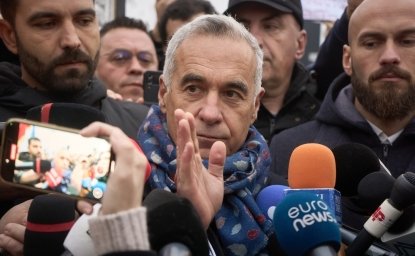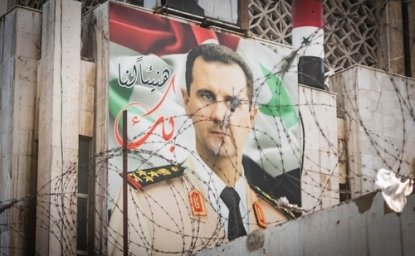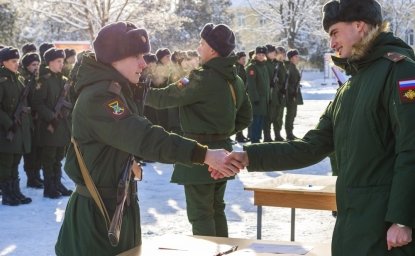
A blog of the Kennan Institute
As the world united in condemning the massacre of Israeli civilians by the Palestinian terrorist group Hamas, an attack that left 1,400 Israelis dead, 2,600 injured, and 200 kidnapped to Gaza, Russia took a different approach. For Vladimir Putin, the attack and the anticipated ground invasion of the Gaza Strip present an opportunity to shed his pariah status and elevate his profile as the Middle East faces its most dangerous crisis in years.
Israel’s Tragedy as a Platform for Putin’s Propaganda
Speaking to an Iraqi prime minister two days after the massacre, Putin blamed the crisis on the United States and its failed Middle East policy, claiming that the US sought to “monopolize” the resolution of the Israeli-Palestinian conflict while failing to account for the “fundamental interests of the Palestinian people”—namely, their desire for an independent Palestinian state with the capital in East Jerusalem.
A few days later Putin equated the Israeli response—the siege of Gaza in an attempt to force Hamas to return the hostages—with the actions of the Nazis during the Leningrad blockade. Israel, of course, has a right to defend itself, he said, but it’s important to end the bloodshed, stop the fighting, and find “the right solution." Such a solution “could be reached with the help of mediation,” he hinted thickly, reminding the audience that Russia has decades of experience in the region. At neither of these two public opportunities did Putin condemn Hamas.
More clarity emerged about the Russian perspective when Russia’s ambassador to the UN, Vassily Nebenzya, circulated a draft resolution to the members of the UN Security Council containing the same talking points. The UNSC rejected the resolution, with the U.S. Ambassador, Linda Thomas-Greenfield, roundly criticizing the document for its failure to condemn Hamas, which, she said, translated into Russia proposing to "[give] cover to a terrorist group that brutalizes innocent civilians” and was singularly responsible for the humanitarian crisis in Gaza.
For their part, Russian commentators have filled the airwaves with anti-Israel rhetoric, with many gloating over the tragedy in apparent retaliation for Israel siding with Ukraine in Russia’s war against that country. Others denied the atrocities and followed Putin’s lead in equating Israelis with the Nazis: “It’s a paradox, but Jewish mass media,” wrote Komsomolskaya Pravda, “rushed to report” the atrocities, as if following the precepts of Joseph Goebbels’ propagandistic principle that “the bigger the lie, the more readily will people believe it.” As comparisons between Hamas and ISIS proliferated online in the Western media, Russian propagandists, in a classic move, reversed the tables and began to manufacture similarities between Israel and ISIS.
Equating Israelis with the Nazis is nothing new for Russian diplomats and propagandists. In the 1970s and 1980s, these equations, known as Holocaust inversion, were a staple of Soviet anti-Israel propaganda, which worked to demonize the country and its founding ideology, Zionism, at home and abroad. Like Putin and his propagandists today, the Soviet press used to avoid mentioning terror attacks perpetrated against Israelis by Palestinian terrorist groups (groups the USSR fostered, trained,and financed), focusing all of its attention on the Israeli response and thereby painting a picture of bloodthirsty Israelis bombing defenseless Palestinians for fun. Russia is now back on the international scene as a purveyor of state-sponsored anti-Israel propaganda couched in blatant antisemitic tropes.
Hamas Thanks Putin
Hamas, whose leaders visited Moscow twice in the past year, responded with gratitude. A day after the massacre, senior Hamas official Ali Baraka expressed the view in an interview with Russia Today’s Arabic channel that Russia sympathized with Hamas and was pleased with the war because it drew American attention away from Russia’s war of aggression in Ukraine. Russians, he said, had sent Hamas messages of support in the wake of the massacre. He also claimed that Hamas had a Russian license and factories to manufacture Kalashnikov rifles and bullets in Gaza. “We are not alone on the battlefield,” he told the interviewer, obviously triumphant. A few days later, Hamas published a statement expressing gratitude for Putin’s support and for his position vis-à-vis “the ongoing Zionist aggression against our people and his rejection of the siege of Gaza, the interruption of humanitarian supplies there and the attacks against civilians.”
What is notable about Hamas’s statements—although unsurprising to long-term observers of the region—is that they failed to express gratitude to Putin for championing the cause of an independent Palestinian state. This omission has a simple explanation: an independent Palestinian state next to Israel is not, in fact, Hamas’s goal. Rather, Hamas is driven by the genocidal goal of destroying Israel and its Jews, and establishing a Palestinian state in its place—the real meaning of the slogan frequently chanted on American college campuses and at anti-Israel demonstrations elsewhere: “From the river to the sea, Palestine will be free.”
Terrorism Instead of a Two-State Solution
Hamas’s actions on October 7 conveyed this point starkly. When Israelis withdrew from Gaza in 2005, the enclave was supposed to be a test run for a future independent Palestinian state living at peace with its Jewish neighbor. Hopes ran high that it would become something of a Dubai on the Mediterranean: tourists would flock to its beaches, and commerce would flow through a new deep-sea port. But a year later, Gazans elected Hamas, which imposed a ruthless totalitarian regime on it.
Over the next eighteen years, Hamas’s leaders enriched themselves from the hundreds of millions of dollars in foreign aid intended for civilian projects and used the cash to build military tunnels, acquire weapons, and turn Gaza into a launching pad for terror. Anyone who thought that Hamas had grown more pragmatic in recent years need only consider that the October 7 attack destroyed the very agricultural communities that used to employ some of the 17,000 Gazan workers who annually benefited from Israel’s special work permit program, earning on average six times what they could in Gaza. Clearly, Gazans will not work in Israel in the foreseeable future.
Nor has the Palestinian Authority, headed by Russia’s good friend Mahmoud Abbas (who defended his PhD dissertation equating Zionism with Nazism at the Moscow Institute of Oriental Studies in 1982), shown more interest in an independent Palestinian state coexisting next to the Jewish state. Abbas famously rejected an Israeli proposal that would have given Palestinians 94 percent of the West Bank territory. As Einat Wilf, the left-wing Israeli commentator on Palestinian issues and co-author of the bestselling The War of Return, put it, “Had [the Palestinian] cause been limited [to] goals like ‘ending the occupation,’ or ‘removing settlements’ or ‘creating an independent state,’ they would have fulfilled it long ago. But their cause has always been and remains to ensure that the Jews have no state in any part of the land,” leading them to miss one opportunity after another.
It is hard to imagine that Putin and his diplomats fail to appreciate these dynamics. Both he and his foreign minister, Sergey Lavrov, are graduates of the Soviet system and know full well what the Palestinian leaders actually want. So what are we to make of Putin’s locutions on the crisis?
Putin’s Stance Is Tied to Larger Geopolitical Goals
For one thing, Putin’s carefully calibrated message, with its ostensibly pro-Palestinian stance and failure to condemn Hamas or express public sympathy for the murdered Israelis, accompanied by aggressive condemnation of U.S. policy and calls for a ceasefire, helps Putin curry favor with one of the American constituencies that have long taken a pro-Russian position on the issue that really matters to him, the war in Ukraine: the American hard left, including many in academia.
This group, which has offered startling support for Hamas’s savagery, is now facing a backlash at home. To them, Putin’s statements signal that in this war too, they can rally around him. His statements are also a dog whistle to the antisemitic far right (another part of the Russian global fan base), which has hailed the murder of the Israelis for its own obvious reasons and is now busy, along with Russian media, denying the atrocities.
At the same time, Putin’s banal wording about an independent Palestinian state (which, in its vague and very general terms, is in fact fully aligned with U.S. policy in the region) leaves the door open for Americans and other Western states to approach him if things go from bad to worse. Russian diplomats undoubtedly hope that the crisis will offer an opportunity for Moscow to make itself indispensable in one way or another, helping everyone to put unpleasant feelings generated by the war in Ukraine behind them and embrace Russia once again.
As for Israel, the war is likely to be a turning point in its relationship with Russia. Netanyahu, who for years used to pride himself on his close relationship with Putin, was the last regional leader Putin called in the wake of Hamas’s slaughter—nine long days after it happened. In the call, Putin did finally express sympathy for the Israelis. But with Russia’s alliance with Teheran growing ever tighter, and with Teheran backing up Israel’s most immediate deadly enemies—Iranian proxies Hamas and Hezbollah—it seems that the Netanyahu-Putin friendship (if indeed it ever was that) may now be over.
The opinions expressed in this article are those solely of the author and do not reflect the views of the Kennan Institute.
Author


Kennan Institute
The Kennan Institute is the premier US center for advanced research on Eurasia and the oldest and largest regional program at the Woodrow Wilson International Center for Scholars. The Kennan Institute is committed to improving American understanding of Russia, Ukraine, Central Asia, the South Caucasus, and the surrounding region though research and exchange. Read more


Middle East Program
The Wilson Center’s Middle East Program serves as a crucial resource for the policymaking community and beyond, providing analyses and research that helps inform US foreign policymaking, stimulates public debate, and expands knowledge about issues in the wider Middle East and North Africa (MENA) region. Read more

Explore More in The Russia File
Browse The Russia File
In Search of Russia’s Digital Trace in Romania’s Political Crisis

With Syria’s Collapse Russia’s Regional Power Play Disintegrates

Putin's Strategy Tests Europe's Defense Limits

